Nothing beats the power of organic traffic when it comes to increasing your Amazon profits.
With organic traffic, you can get thousands of people to visit your product listings without spending a lot of money on paid advertisements.
If you rank high enough on Amazon’s search engine results, you can get consistent sales without running an Amazon PPC campaign.
However, there is one crucial thing that you have to learn before you can rank high on Amazon.
And that is finding the right keywords for your product listings.
Knowing the right keywords will help your listings get ahead of the competition.
Optimizing for keywords with low competition and high demand will allow your listings to get decent traffic without spending too much time on Amazon SEO.
Helium 10 Magnet is one of the most popular keyword research tools for Amazon sellers today.
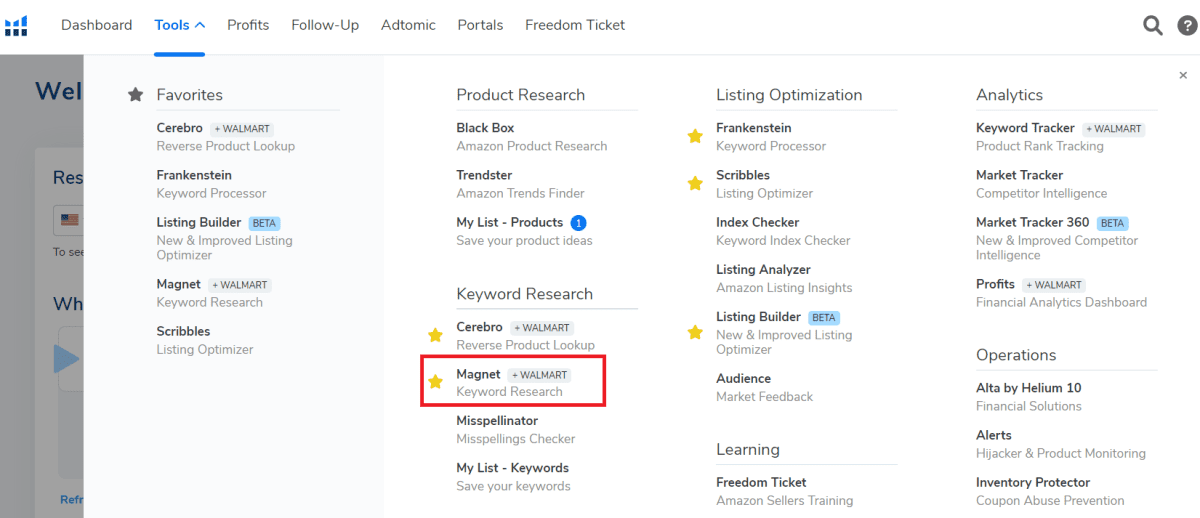
Designed to make keyword research easier, Magnet can help you find the most profitable keywords for your product with just a few clicks of a button.
In this article, we’ll talk about how to use Helium 10 Magnet to find low-competition, high search volume keywords that you can use for your product listings.
Using the extensive database of Amazon’s search terms, I’ll show you how to use Helium 10 Magnet to access long-tail keywords that you won’t discover anywhere else.
Ready to increase your organic traffic through keyword optimization? Let’s start by learning what Helium 10 Magnet is all about.
What Is Helium 10 Magnet?
Magnet is the primary keyword research tool in Helium 10’s suite.
It digs deep inside Amazon’s database to uncover long-tail keywords that can bring decent traffic and high search volume to your product listings.
Using the Magnet tool, you can quickly discover keywords that can help improve your listing optimization and conversion rates on Amazon.
The Helium 10 Magnet dashboard shows two tabs for researching keyword ideas: the Find Suggestion tab and the Analyze Keywords tab.
Let’s briefly talk about these two options below:
Find Suggestion
Find Suggestion takes one keyword input and then provides a list of hundreds of keywords related to your root keyword.
If you are trying to discover long-tail keywords that you can use to optimize your product listings, the Find Suggestion tool is your best option.
Analyze Keywords
What if you have a list of keywords and you want to know which ones are worth keeping and which should be discarded? What tool should you use?
The answer is obviously the Analyze Keywords tab. Using this feature, you can input up to 200 unique keywords from your list and let Helium 10 Magnet analyze which ones are most relevant to your product listings.
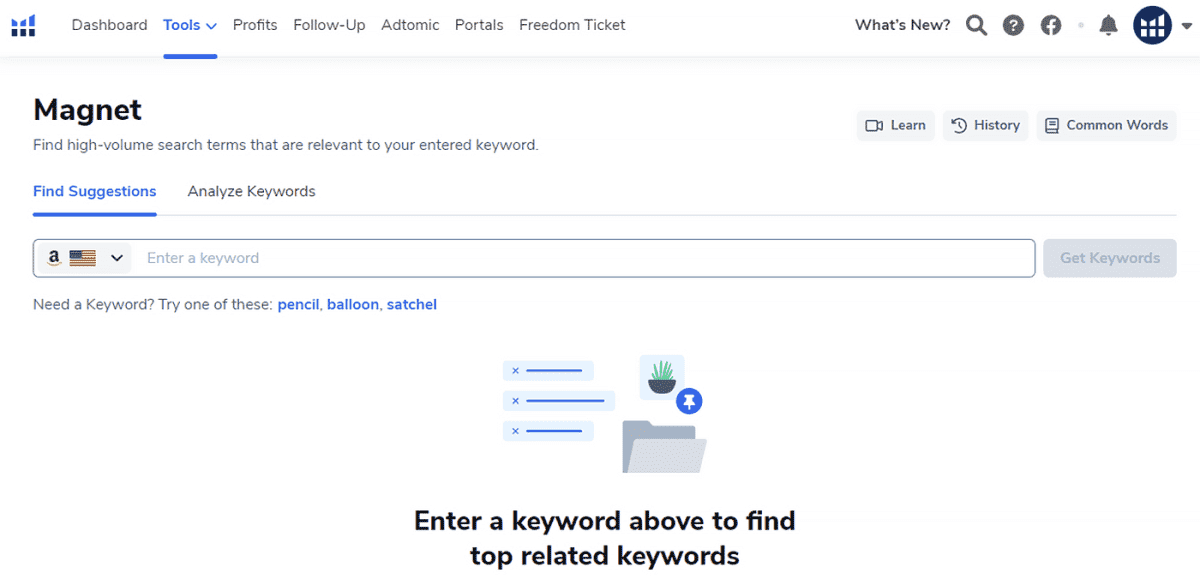
What Is The Difference Between Magnet and Cerebro?
This is probably one of the most common questions that I have encountered among Amazon sellers.
Because both Helium 10 Magnet and Cerebro are keyword research tools, it’s quite easy to get confused about which keyword tool to use.
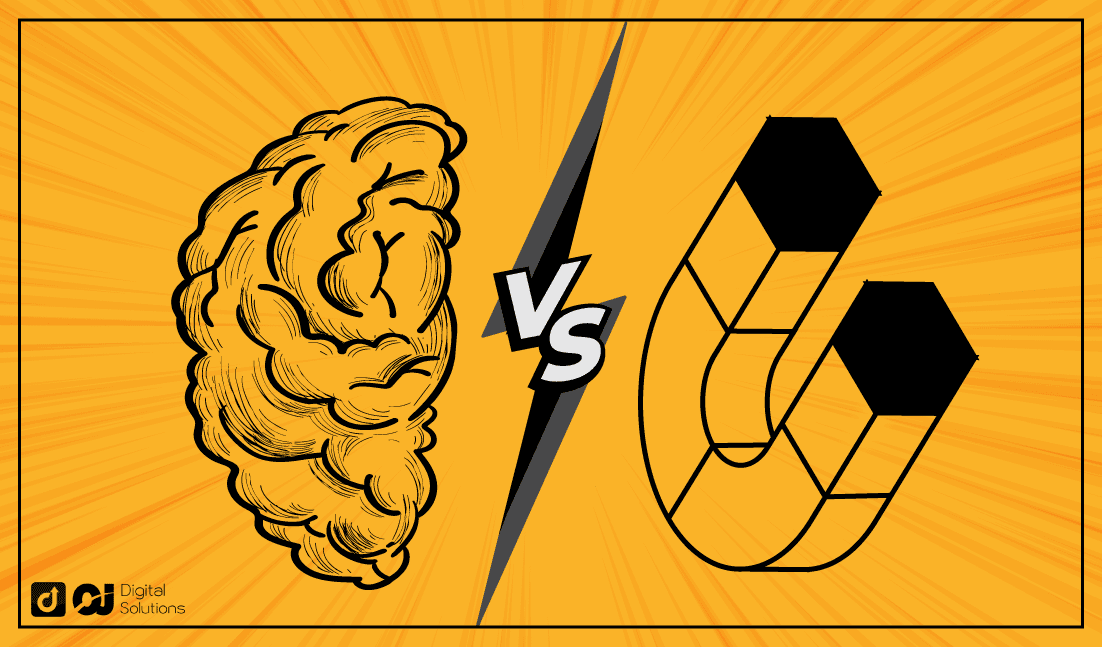
So what is the difference between Helium 10 Magnet and Cerebro?
The answer to this question is pretty simple.
Helium 10 Cerebro is more of a competitor keyword research tool.
It is a Reverse ASIN Tool that allows you to use a competitor’s ASIN or Product ID to discover profitable keywords.
In other words, Cerebro focuses on your competitors’ keywords that are already ranking high on Amazon’s search results.
If you want to know the best keywords from competing products in your niche, then Cerebro is the tool you should use.
Helium 10 Magnet, on the other hand, is more of a keyword mining tool. It allows you to uncover hundreds of relevant keyword ideas from one seed keyword.
If you already have a primary starting keyword in mind, you can use the Magnet tool to discover more keyword suggestions.
As a product research tool, Magnet is better suited for building a keyword list because it uncovers search terms and long tail keywords that other tools usually won’t find.
How To Use Helium 10 Magnet
Using the Helium 10 Magnet tool to find relevant keywords with high search volume is relatively easy. Even beginners with no prior experience will find this tool easy to use.
All you have to do is enter your seed keyword and wait for the Magnet tool to generate keyword suggestions for you.
Let me show you how to use this tool to find low competition, high search volume keywords below:
Open The Helium 10 Magnet Tool
The first step to finding actionable keywords for your Amazon listing optimization is to open the Magnet tool.
You can do this by clicking the Tools option in the menu bar and looking for the Magnet tool under the Keyword Research section.
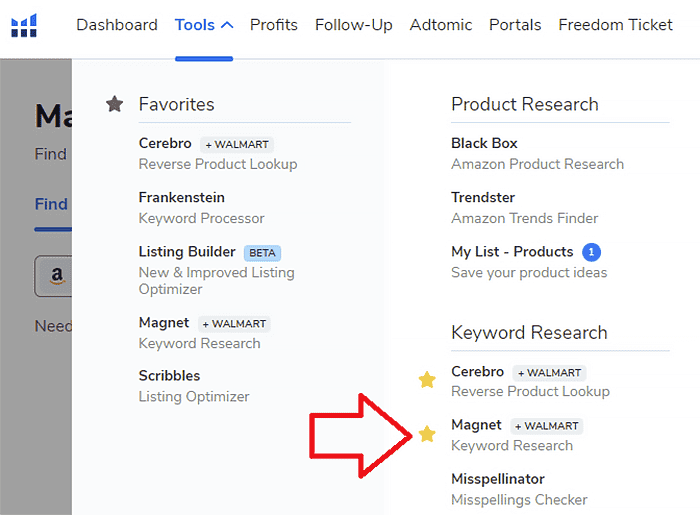
Begin A Search
Next, you need to enter your primary keyword. This “seed search term” will be used to generate the best keywords for your product listings.
To do this, simply enter your primary keyword on the Magnet tool’s Search Bar.
As you can see from the image below, some additional keywords might appear when you perform this action.
These additional keywords are real-time suggestions from actual search terms used by Amazon customers.
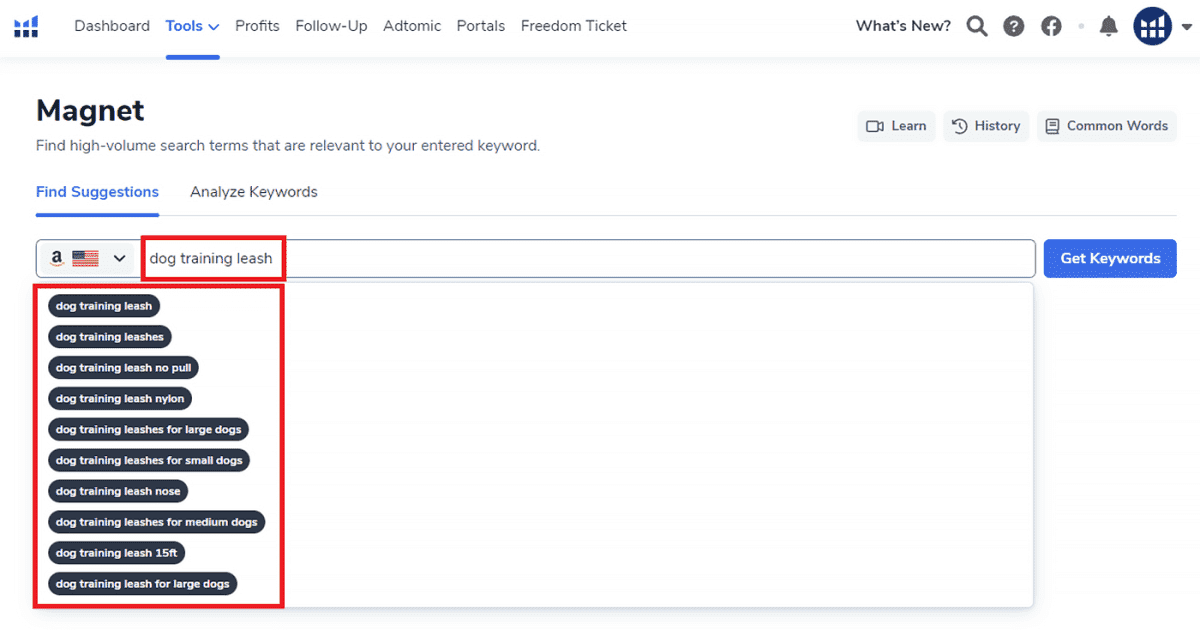
Select Your Amazon Marketplace Country
Amazon has different marketplaces all over the world. It has the largest database of products in the world, so you must choose the right marketplace for better results.
The results of the Magnet tool will differ depending on the marketplace you choose during the search.
To change the Amazon marketplace you want to focus on, you can simply click the Country Flag icon on the left of the search bar.
If you are selling on a different local Amazon marketplace, make sure to choose the right country to fine-tune your results.
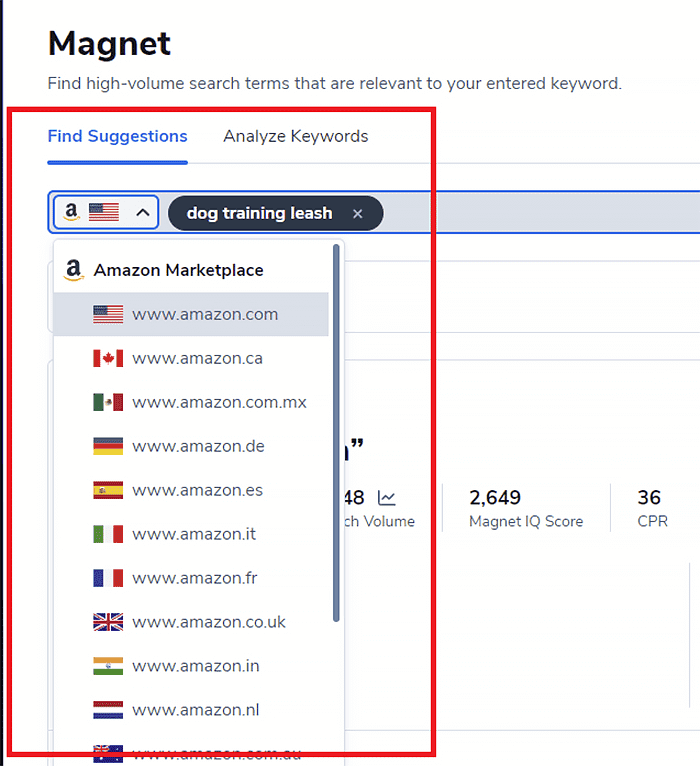
Analyze and Interpret Your Results
Once you have chosen the right marketplace and entered your primary keyword, the Magnet tool will display a Keyword Search Summary.
The Keyword Search Summary will allow you to gain insight into the results of your initial query. It will give you a better idea of the best keywords that you can use for your listings.
Let’s take a look at the example below.

According to the Keyword Search Summary, the keyword “dog training leash” has a total search volume of 7.948 monthly searches on Amazon.
There are 2,802 related relevant keywords associated with the primary keyword “dog training leash.”
The words “leash,” “dog,” and “training” are the top three terms that make up most of the keyword suggestions in this list.
The Magnet IQ Score of this keyword term is 2,649, which is quite high. This means that this keyword has a relatively high number of searches compared to the number of competitors. A high number means a better keyword, and vice-versa.
Finally, the keyword also has 36 CPR (Cerebro Product Rank).
This means that you need to sell at least 36 units of products resulting from a search of this keyword in one week (if you want to rank on the first page of Amazon’s search results for this specific keyword.)
Manipulate Your Results According To Your Requirements
Now that you have analyzed the results for your main seed keyword, the next thing to look at is the list of keyword suggestions generated by the tool.
As you can see, there are several long-tail keyword suggestions generated from our search.
Depending on your requirements, you can manipulate these keyword suggestions to find the information you are looking for.
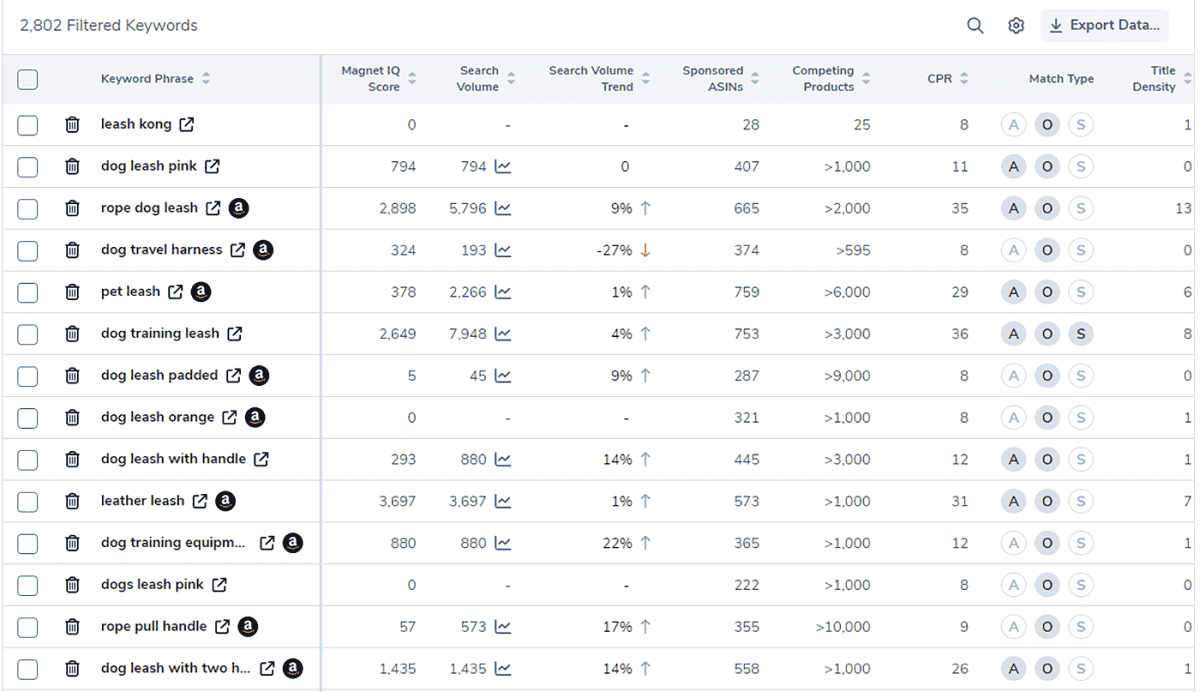
For example, if you want to arrange the keywords with the highest search volume, you can simply click the Search Volume column title.
By doing this action, Magnet will automatically arrange the data from highest to lowest (clicking it again will rearrange the data from lowest to highest, and vice-versa)
Filter For Magnet IQ Score
The Magnet IQ Score is the number of searches a keyword generates compared to the number of competitors targeting the keyword.
Just to make it simple, a keyword with a high search volume but a low number of competitors targeting it will have a high Magnet IQ Score (and vice-versa)
If you want to find the best keywords for your Amazon business, then it’s a no-brainer that you have to look for keywords with a high Magnet IQ Score.
So how do you filter your search results to find the best keywords with a high Magnet IQ Score?
Let me show you below.
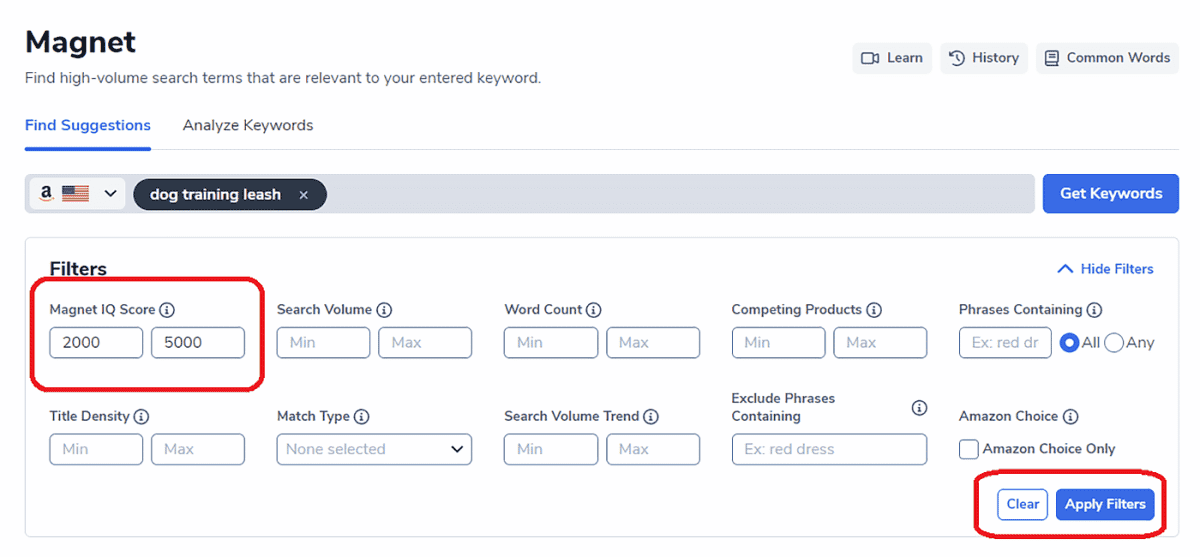
To filter for Magnet IQ Score, simply use the Advanced Filters to narrow down your search results.
Under the Magnet IQ Score section, input the minimum and maximum values you want. I suggest putting somewhere around 2000-5000 if you want to find keywords with relatively high Magnet IQ scores.
Modify Your Search Volume
You don’t want to use keywords with very little search volume because they won’t bring much organic traffic.
However, you shouldn’t target keywords with a very high search volume too.
Why?
Because the majority of Amazon sellers also target keywords with a high search volume. You’ll be wasting your resources trying to rank for these high-volume keywords.
Instead, try to go for the low-hanging fruit keywords.
Low-hanging fruit keywords don’t have a very high search volume. But if you combine them, the accumulated traffic they bring will make up for the lower search volume.
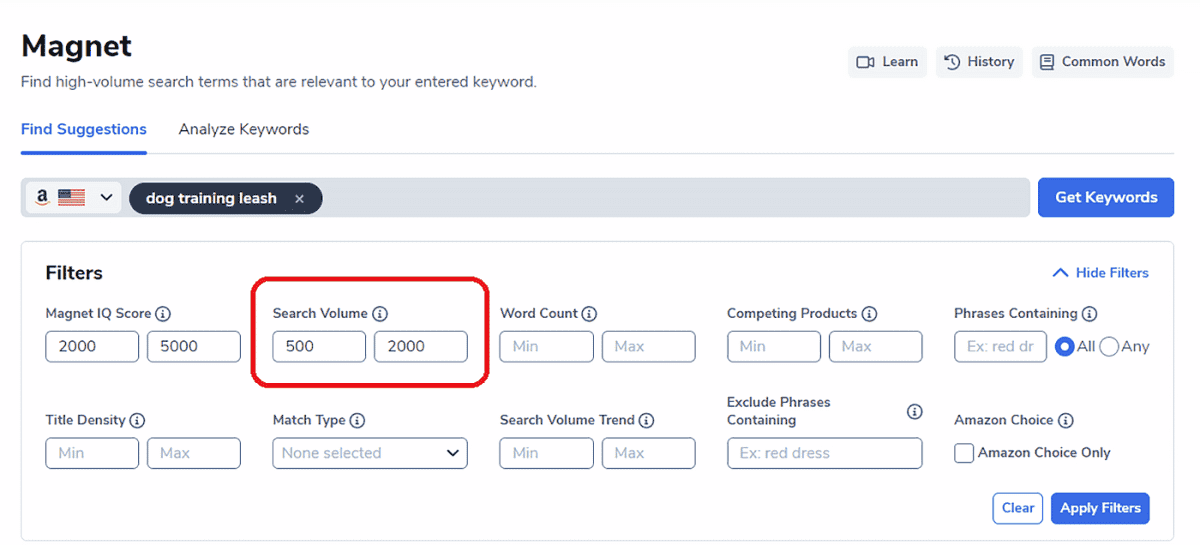
Increase The Word Count In Your Search
Another strategy you can use to find the best keywords with low competition is increasing your Word Count.
Word Count tells you how many words there are in a keyword search term.
For example, the keyword “dog training leash” has a Word Count of 3. The keyword “dog leash” has a Word Count of 2. And so on.
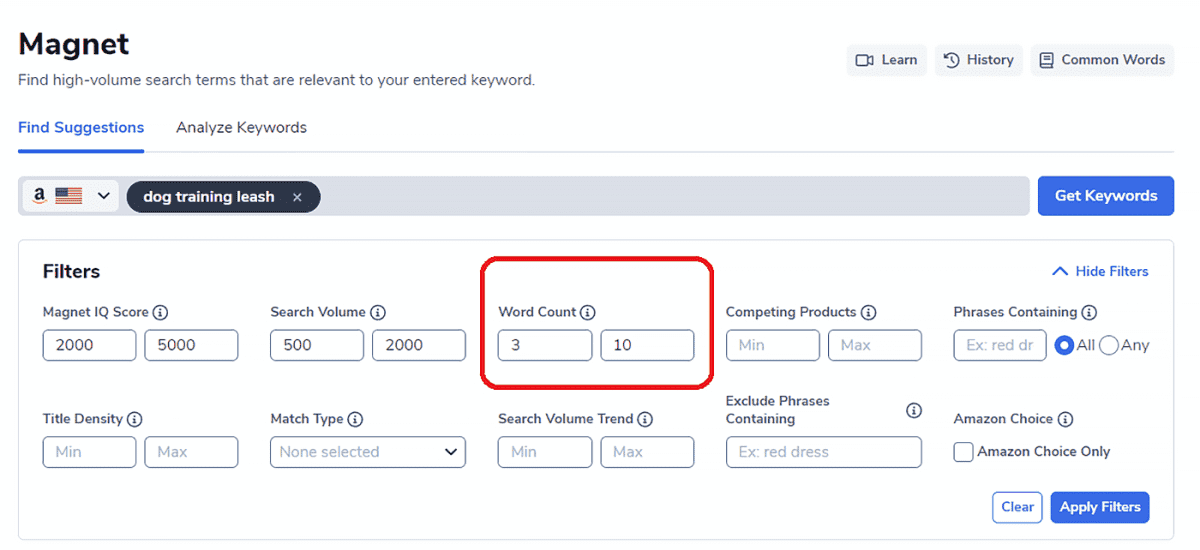
The higher the Word Count of a keyword, the less likely a competitor will target it.
For this reason, filtering your results to include only long-tail keywords with a Word Count of 4 or more is a good way to minimize potential competition.
Narrow Down Competing Products
One of the most important sections of the filter is the Competing Products.
Through this filter, you can limit the number of competitors targeting the keywords in your list.
This filter is one of the most effective ways of finding high-volume, low-competition keywords in your niche.
I suggest using a value between 1 and 100 if you want to increase your chances of getting into your keywords’ first page of Amazon’s search results.
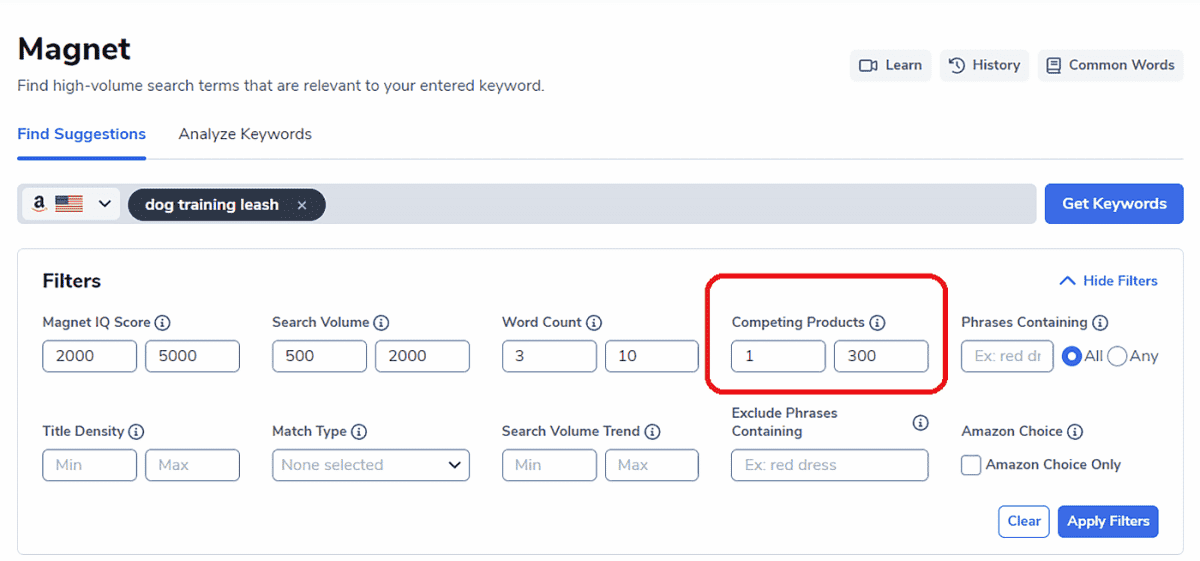
Explore The Advanced Filters
The Advanced Filters have other features that you can use to narrow your results even further.
One of my favorite tools to use is the Exclude Phrases Containing. If I want to remove search terms that “non-quality” buyers use, I simply add the keyword “discount” or “free” in this section.
Do you want to know the reason why?
It’s because I have learned through experience that most people looking for free deals use the keywords “free” or “discount” when searching for items on Amazon.
I don’t want to deal with people who are always on the hunt for discount deals because they are usually very stingy customers.
Thus, I eliminate them from my results by excluding those keyword terms.
This is just one example of how I use the Advanced Filters.
You can explore the Advanced Filters in many other ways and use it to your advantage too.
Save Your Data For Future Use
After analyzing, interpreting, and filtering your results, the final step is to save your data for future use.
Suppose you are using external applications or programs such as Excel or Google Sheets to parse the information.
In that case, you can export your data by clicking the Export Data button, as shown in the image below.
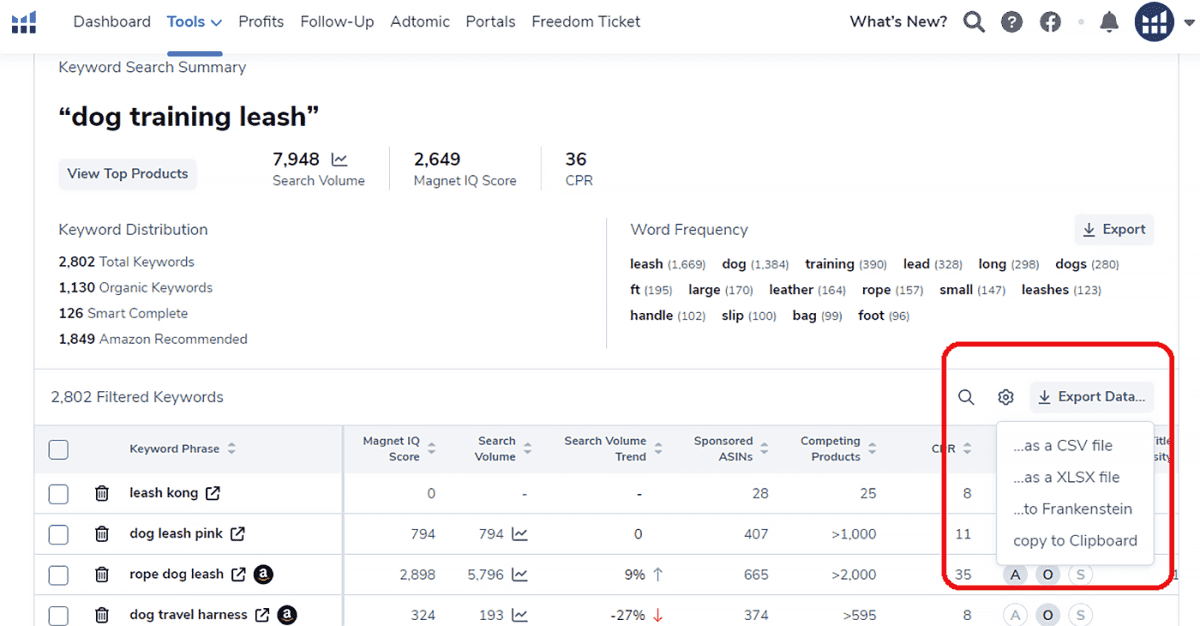
With this final step, you can now manipulate and share the data.
If you are hiring a third-party Amazon PPC company to handle your advertising campaigns, exporting your keyword list is a great way to share information with your colleagues.
How Does Helium 10 Magnet Help You As An Amazon Seller?
As an Amazon seller, what makes Helium 10 Magnet an irreplaceable asset for your business?
Is it truly one of the best keyword and product research tools in the market today?
For me, here are the reasons why I believe Helium 10 Magnet is a crucial tool when it comes to scaling your Amazon business:
Perfect Keyword Research Tool
In the previous sections, I have shown you how easy it is to do product research, get product ideas, and discover profitable keywords using the Helium 10 Magnet tool.
For me, there is no tool in the market right now that can beat Magnet when it comes to keyword research for Amazon.
The thing about Magnet is that it shows not only the monthly search volume of a keyword. It also shows you information such as how many competitors are targeting the keywords or if a keyword appears in Amazon’s Choice results.
This information offers valuable insights for Amazon sellers and can help you decide whether a keyword is worth going for or not.
Largest Amazon Keyword Database In The World
The Helium 10 Magnet tool has direct access to Amazon’s API, making it the largest Amazon keyword database in the world.
There is no source more accurate than Amazon itself. And it makes the Magnet tool very reliable and trustworthy.
Increase Organic Ranking And Boost Sales
Are you familiar with the Amazon A10 Algorithm?
The Amazon A10 algorithm decides how to rank the products on Amazon based on customers’ keyword search queries.
One of the factors that play a big part when it comes to organic ranking is product listing optimization.
Listing optimization involves using related keywords on your listing’s title, description, bullet points, and image alt text.
Your ability to perform proper listing optimization begins with proper keyword research.
Because Helium 10 Magnet makes it easier to do keyword research, it can help you increase your organic rankings, which in turn leads to more sales.
Features Of Helium 10 Magnet
Word Frequency
Word Frequency describes how often a word appears in the keywords suggestion list generated by the Magnet tool.
The higher the Word Frequency, the more relevant a keyword is to your niche.
It is a good way to quickly see what keywords are relevant to your seed keyword and how you can use them to optimize your product listings.
Magnet IQ Score
The Magnet IQ Score is the number of searches a keyword generates compared to the number of competitors targeting the keyword.
A keyword with a high search volume but doesn’t have a lot of competitors targeting it will get a high Magnet IQ score.
On the contrary, keywords that have a high number of competitors but not too much search volume will get a low Magnet IQ Score.
Search Volume
Search Volume is the number of times a keyword is searched on Amazon monthly.
If a keyword has a high search volume, it means a lot of customers are interested in it — which means it can bring a lot of traffic to your Amazon store.
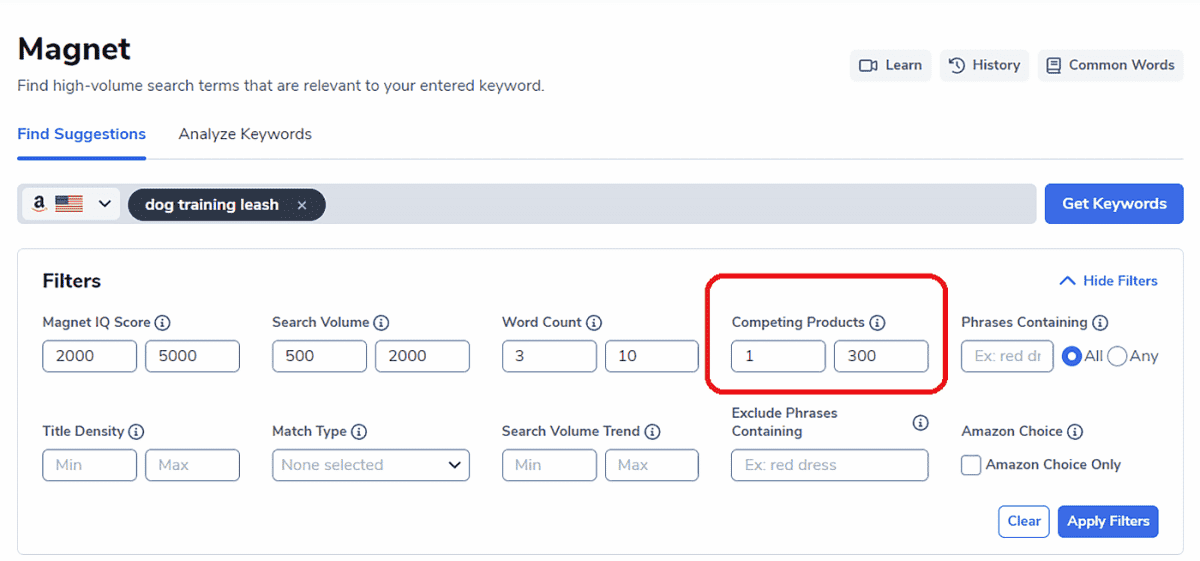
Competing Products
Competing Products is the total number of products returned in a customer search using this keyword phrase.
If many competing products are returned for a keyword search query, it means that the competition for this specific keyword is high.
The wise move to make as an Amazon seller is to avoid keywords with many competing products.
Title Density
Title Density is the number of products on the first page of Amazon that has this search keyword in their product title.
The higher a keyword’s title density is, the more competitors there are targeting the same keywords. You’d be smart to stay away from keywords with a high number of Title Density.
Helium 10 Magnet Pricing
Magnet comes with your Helium 10 subscription. For $29/month, you can start utilizing Helium 10 for your personal use.
However, the Starter plan has limited functions and features. So if you want to unlock the maximum potential of Helium 10, going for Platinum ($84/month) or Diamond ($209/month) is your best bet.
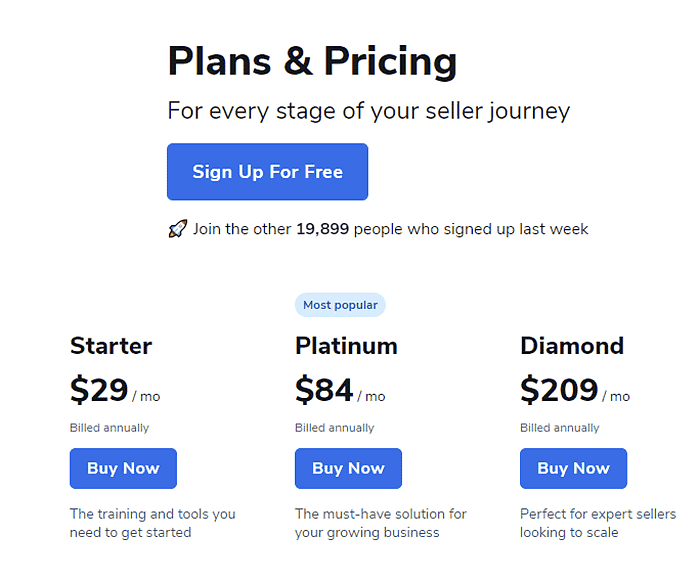
Helium 10 Magnet For PPC Keyword Research
Can you use Helium 10 Magnet for Amazon PPC keyword research too?
Absolutely!
One of the features of Magnet is “Sponsored ASINs.” Using this feature, you can sort the keyword results depending on how many sellers target these keywords via Amazon PPC.
If you are looking for keywords with little PPC competition, you can sort the results from lowest to highest and see which terms make your list.
The lower the Sponsored ASINs number, the fewer the Amazon PPC competitors you have to go against.
Of course, you have to ensure that the keywords are actually related to the niche or product you are trying to sell. You still have to double-check the keywords once they get filtered using your standards.
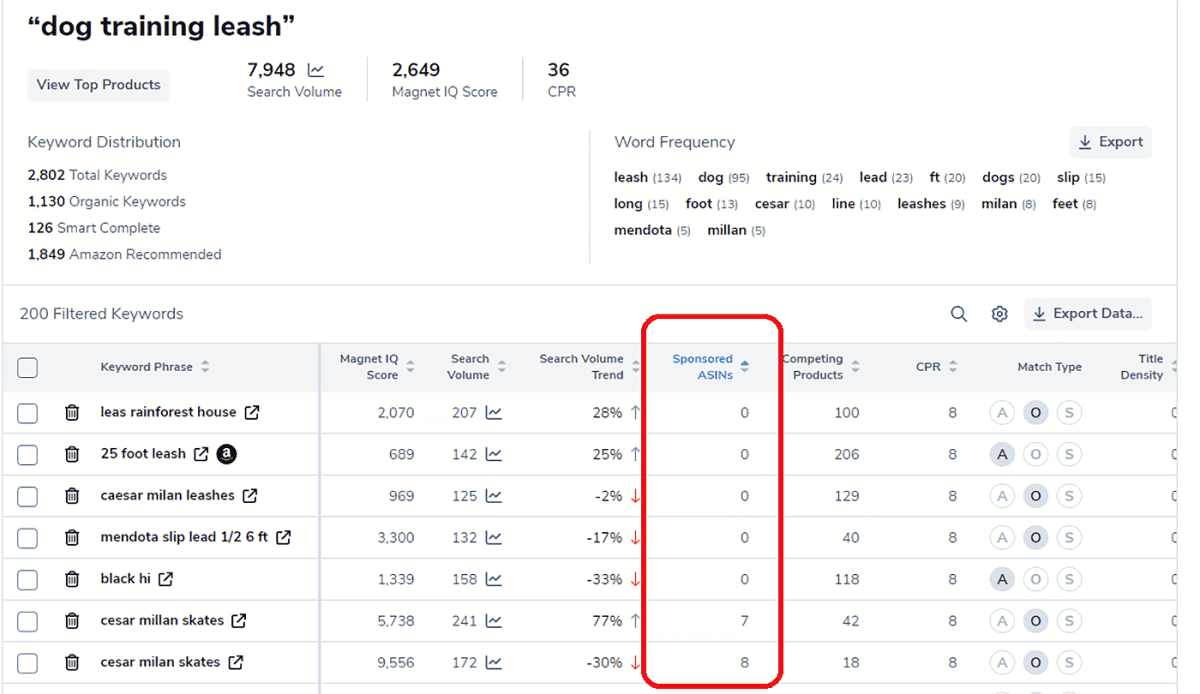
FAQ – Frequently Asked Questions
What Is CPR In Magnet?
CPR (Cerebro Product Rank) is the number of units that you have to sell in a week resulting in a search query for a keyword if you want to reach the first page of Amazon.
Let me make it easier for you to understand.
If the keyword “dog training leash” has a CPR of 36, it means that I have to sell 36 units of a product resulting from a keyword search of “dog training leash.” If you can sell 36 units, you’ll have a high chance of getting on the top half of Amazon’s first page results.
What Is Smart Complete In Magnet?
Smart Complete keywords refer to terms or phrases listed in the Amazon index which exactly match the keyword you are searching for.
They usually show up when you try to search for a keyword term such as below:
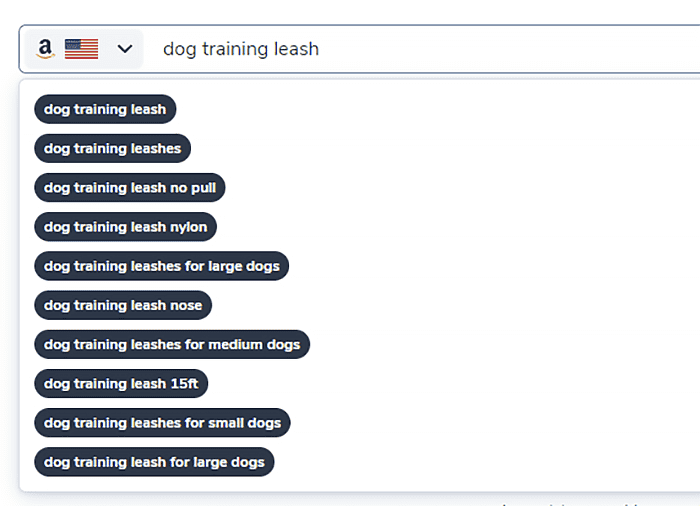
What Is Helium 10 Magnet IQ?
The Magnet IQ Score is the number of searches a keyword generates compared to the number of competitors targeting the keyword.
Keywords with a high number of monthly searches but a low number of sellers targeting them will get a high Magnet IQ score (and vice-versa)
Bottom Line
True to its word, Helium 10 Magnet is a tool that delivers high-quality, reliable, and accurate results.
When it comes to keyword research, nothing in the current market compares to what Magnet brings to the table.
Knowing what keywords to target is an advantage if you want to write highly-converting product listings.
If you are hiring an Amazon copywriter to create optimized product listings for you, having a list of the best keywords to use will make the job easier for everyone.
Hopefully, this article was able to help you understand how to use the Magnet tool and maximize its potential.
When used properly, the Magnet tool can help you discover profitable keywords that can help drive sales and traffic to your Amazon store.




